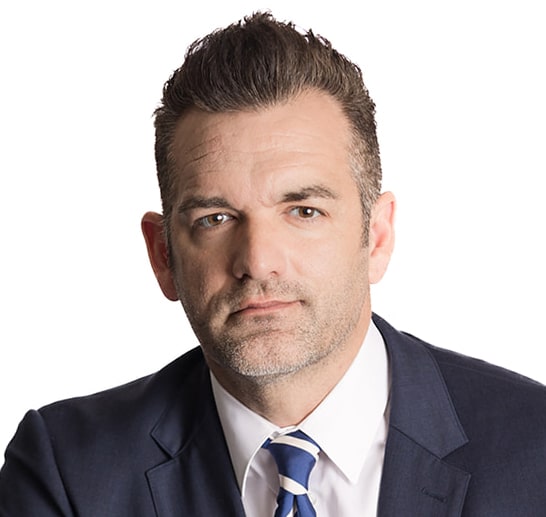Meta Lawsuit -
Facebook & Instagram
Meta, the large, powerful social media corporation behind Facebook and Instagram, has long evaded accountability while knowingly harming children and teens who use its platforms. With a proven history of holding large corporations accountable, the product liability lawyers at the Lanier Law Firm are committed to helping injured children and families recover substantial compensation through a social media addiction lawsuit. Contact us today at 1-800-723-3216 for a free case evaluation.
Home » Social Media Addiction » Social Media Addiction Lawsuit » Meta Lawsuit

Legally Reviewed By: Rachel Lanier
Managing Attorney | Los Angeles
Co-Lead Plaintiffs Counsel – Social Media Addiction Multi-District Litigation
- Page Last Updated:
- February 27, 2025

Legally Reviewed By: Rachel Lanier
Managing Attorney | Los Angeles
Co-Lead Plaintiffs Counsel – Social Media Addiction Multi-District Litigation
- Page Last Updated:
- February 27, 2025
Why should I choose the Lanier Law Firm to handle my meta lawsuit?
The Arkansas Attorney General’s Facebook Meta Lawsuit
Individual Meta Facebook Lawsuits
Is there a class action Meta lawsuit?
Do social media companies have a defense?
Does my case qualify for a social media lawsuit?
Compensation in a Meta Lawsuit
Meta Platform Inc. is the social media company that owns Facebook and Instagram. These platforms each boast more than 2 billion monthly active users as of January 2023, according to Statista. These users include significant numbers of youth. Today’s youth are facing a massive mental health crisis, and social media networks may be to blame.
In October 2021, Francis Haugen, a data scientist who worked for Facebook, turned over tens of thousands of pages in documents showing that Facebook has long been aware that its platforms harm the mental health of teens and children. However, they continued to make conscious decisions to prioritize profits over safety.
Meta platforms made approximately $69.7 billion in advertising revenue in 2019 alone, and the social media giant directed most of its advertising at young users. At the same time, Meta designed its platforms to keep users online as long and often as possible, knowingly exploiting young people’s incomplete brain development to foster social media addiction.
Today’s youth are experiencing markedly higher incidences of self-harm, eating disorders, and suicides than youth 10, 20, and 30 years ago. These companies will not stop until they are held accountable. If you or your child has suffered significant harm because of social media, our social media lawyers may be able to help you recover significant compensation.
Why should I choose the Lanier Law Firm to handle my meta lawsuit?
Our attorneys at the Lanier Law Firm are nationally recognized lawyers with vast experience in complex litigation against large companies. Our law firm has been named one of the best law firms in the nation by U.S. News & World Report, and our attorneys are regularly recognized with such honors as Super Lawyers, Lawyer of the Year, and Best Lawyers in America.
This recognition comes about as a result of the significant case results we consistently achieve on behalf of our deserving clients, including the following:
- $9 billion against Takeda & Eli Lilly for cancer risk in the diabetes drug Actos
- $4.69 billion verdict against Johnson & Johnson, which was appealed all the way to the Supreme Court and ultimately upheld for $2.1 billion
- $417 million verdict in a business fraud case against Amoco
- $253 million verdict against the makers of Vioxx
- $56.3 million verdict against Caterpillar Inc. and Holt Texas for a construction worker’s paralysis caused by defective equipment
- $6.2 million attorney fees recovered against Bank of America for attorney fees
Successfully standing up to large companies requires resilience and a reputation for being tough in the courtroom. Our trial lawyers are among the most skilled in the nation, having earned such acclaim as “most impressive plaintiffs verdict” and “most feared law firms.”
We provide personalized legal care to every client and refuse to give up until we get justice. We treat our clients like family, and it shows in the feedback we regularly receive, such as the following:
The Lanier Law Firm is in a class of its own. In addition to Mark Lanier, one of the most talented lawyers who has ever practiced law, the firm has a deep and impressive bench of lawyers capable of handling even the most complex and important litigation. The firm and its lawyers have my highest recommendation. — Clay Crawford
The Lanier Law Firm is totally awesome. When I have had bad days they have lifted me up. They truly care. You do not find that at very many places. I feel so blessed having them and all they have done for my family. They are family. They are the best of the best. — Carla Hunter
They go above and beyond to help people. The whole process from start to finish went very smoothly. Extremely satisfied! Thank you! — Blake Schwartzkopf
By submitting this form, you agree to our terms & conditions. Please read full disclaimer here.
Our Featured Social Media Lawyers

Mark Lanier
Mark Lanier is the founder of the Lanier Law Firm, which he established in 1990. He is well-known for his creative and sometimes unconventional approaches to presenting cases in court, including the use of props and cutting-edge technology. He is often recognized for his talent at connecting with juries.
Throughout his remarkable career, Mark Lanier has won nearly $20 billion in settlements and verdicts in complex cases against large companies, including cases involving toxic substances, consumer products, dangerous drugs, and defective medical devices. He is currently handling an antitrust lawsuit against Google on behalf of multiple state governments.
He has been featured in well-known publications such as The Wall Street Journal, The New York Times, The Los Angeles Times, and Bloomberg News. He is a frequent guest on major news networks.
Mark Lanier also serves as a legal educator. He is widely sought after by leading attorneys for educational development and keynote speeches. He often lectures at the nation’s top law schools, including Harvard Law School, Stanford Law School, and Pepperdine University School of Law.
His acclaim includes the following honors:
- Most Impressive Plaintiff Verdict of 2019 by Courtroom View Network
- Lawdragon’s 500 Leading Lawyers in America
- National Trial Lawyer’s Hall of Fame
- National Law Journal’s Top 10 Trial Attorneys and 100 Most Influential Lawyers in America
These children are being taken advantage of. There are algorithms and enticements within so many of these programs that actually are altering our children’s minds, making them not only addicted to the content and pursuing these computer uses, but it also is one that is affecting their self-esteem, their social skills, and so much more. – Mark Lanier

Zeke DeRose
Zeke DeRose is a nationally recognized commercial litigation attorney with extensive experience handling complex litigation against massive companies, including antitrust cases, merger disputes, and whistleblower lawsuits in federal and state courts.
He was recognized as one of the Best Lawyers in America in 2023 and was previously recognized as a Top 100 Trial Lawyer by the National Trial Lawyers. He also received the “Pro Bono Champion Award” from the Texas Civil Rights Project.
As the dedicated father of three children, Zeke DeRose understands what is at stake in social media litigation.
One of the great things about working at the Lanier Law Firm is the opportunity to work on cases you’re passionate about, the opportunity to make a difference in people’s lives, not only individuals, but communities, states, and sometimes, even across the globe. And I think that’s the opportunity we have here…. – Zeke DeRose

Rachel Lanier
Rachel Lanier is Managing Attorney of the Los Angeles Office and member of the Lanier Law Firm Trial Team. She practices in the areas of personal injury, toxic torts, pharmaceutical litigation, mass torts, and product liability.
When she is not passionately advocating for her clients, Mrs. Lanier enjoys spending time with her family and exploring the Los Angeles restaurant scene.
“Social media addiction can impact every aspect of an individual’s life, especially among adolescents. The evidence links conditions such as depression, anxiety disorders and eating disorders to a dependence on social media use, and these companies knowingly prey on this addiction to support their profits. I’m pleased to have the confidence and support of my colleagues in this litigation in leading the fight to gain justice.” – Rachel Lanier
How has Meta harmed youth?
Marc Zuckerberg and other Meta executives have publicly claimed they are dedicated to safety. However, they have disregarded their own internal research showing that their products harm young users and have refused to take basic, reasonable steps to make them safe.
As a result, Facebook and Instagram have substantially contributed to the youth mental health crisis in the United States and worldwide.
Addictive Algorithms
Meta platforms use carefully researched algorithms that manipulate young users to stay online as long as possible. These algorithms exploit the immature brain development of adolescents by using social cues to create dopamine loops.
Adolescents are uniquely sensitive to the addictive algorithms on Facebook and Instagram because they have a stronger social drive than adults, which can be more powerful than hunger or greed. Young people also have less self-control because the emotional centers of their brains are more dominant.
As a result, young people develop very real addictions to the platforms and cannot stop using them. According to the United States Surgeon General, “If we tell a child, use the force of your willpower to control how much time you’re spending, you’re pitting a child against the world’s greatest product designers.”

Exposure to Harmful Content
Children and teens who use Meta products are exposed to cyberbullying, sexual exploitation, and sexually explicit content. They are in danger of becoming victims of human trafficking while using the platforms. They may encounter drug pushers, hateful and inciting content, and content depicting disordered behaviors, including eating disorders and self-harm.
Self-Comparisons on Instagram
Although Facebook is no longer a favored platform among teens, social media statistics show that nearly two-thirds of teens use Instagram, which at least one study has shown is the most detrimental to mental health. This development is most likely due to Instagam’s encouragement to compare oneself to others.
Instagram allows users to create an ideal photo using filters on their selfie images. Other users compare their real-life bodies and faces to others’ idealized versions, making users feel worse about their bodies.
Increased Isolation
Although social media is generally considered a tool for connecting to others, it increases feelings of isolation and depression. Heavy users are twice as likely as others to be depressed. The longer girls use social media, the higher the likelihood they will engage in self-harm. Boys are adversely impacted also, but not to the same extent.
Excessive and Problematic Use
Excessive and problematic social media use has resulted in the following adverse effects on youth:
- Body image dysmorphia
- Eating disorders
- Self-harm
- Suicide attempts
- Suicide
- Drug addiction
- Declining academic performance
- Mood disorders, including depression and anxiety
How is Meta liable?
Meta may be liable for social media harm under the doctrine of strict liability, which holds manufacturers and suppliers liable for products that harm consumers due to a dangerous design, manufacturing defect, or failure to warn.
This area of civil law is known as product liability. In a lawsuit, Instagram and Facebook are the products, and Meta, as the creator and distributor of the platform, is the manufacturer.
The Facebook Whistleblower
The internal documents Frances Haugen provided to federal authorities contained incriminating information that proves Meta knew its product harmed children. According to Ms. Haugen, Facebook’s own research shows that angry, inciting, and negative content gets more engagement.
Meta built Facebook’s profit model on engagement. The longer they can keep users on the platform, the more money they make from advertising revenue. Facebook has numerous choices of content to display in any user’s feed. However, it shows negative content because it is more profitable.
Facebook research shows that scrolling on social media is a self-soothing behavior. Negative content causes depressive feelings, creating a stronger urge in children and teens to self-soothe, prompting them to stay on the platform longer. This creates a vicious cycle.
According to the Wall Street Journal, Facebook’s internal documents contained the following information:
- More than 40 percent of teen Instagram users in the United States and the United Kingdom feel “unattractive” from using the app.
- One in five teens feels worse about themselves from using Instagram.
- Teens with existing mental health problems report that Instagram worsens them.
- Approximately 32 percent of teenage girls who use Instagram feel worse about their bodies from using the app.
- Among suicidal users, 13 percent of British and 6 percent of American users report that the desire to kill themselves originated with Instagram use.
Haugen also reported that Facebook’s research revealed that 17 percent of teen girls say Instagram worsens eating disorders.
In a written statement to Congress, Haugen stated the following:
“The company’s leadership knows ways to make Facebook and Instagram safer and won’t make the necessary changes because they have put their immense profits before people.”
The evidence Haugen courageously made public demonstrates that Facebook has knowingly designed a dangerous product that has harmed young users. This is a central allegation in the lawsuits against Meta.
The Arkansas Attorney General’s Facebook Meta Lawsuit
On March 28, 2023, the Lanier Law Firm filed a lawsuit against Meta on behalf of Arkansas Attorney General Tim Griffin in response to the significant mental health crisis in the state attributable to Instagram and Facebook. The Arkansas crisis reflects the teen mental health emergency nationwide.
The lawsuit against Meta seeks damages for the harm that allegedly stemmed from the following:
- The exploitation of the vulnerability of adolescents’ brain development for profit, fueling a 60 percent increase in major depressive episodes
- Algorithms that involve endless scrolling, creating harmful experiences
- Manipulation of the brain reward system in youth to alter behavior, create habits, and cause addiction
- Well-timed feedback to draw users back to the platform after they leave
- Addictive algorithms utilizing techniques similar to gambling slot machines
- Psychological and neuropsychological manipulation to increase engagement and time spent on platforms to maximize profits, including the social validation feedback loop
- Encouragement of social comparison and displacement of healthy life activities like sleep, exercise, and real interaction
- The creation of fake realities and interactions for youth in a world defined by social media to exploit them for profit
- Injuries to the health and comfort of the community of the state of Arkansas
- Instagram photo filters that encourage unhealthy body image
- The fueling of the mental health crisis among Arkansas’s youth
- Deceptive and unconscionable trade practices
- Public nuisance
- Unjust enrichment at the expense of the state and the citizens.

The Arkansas Attorney General is seeking the following damages:
- An injunction prohibiting Meta from continuing to operate their deceptive and harmful business practices
- Civil penalties of $10,000 per violation
- An order that Meta must abate the nuisance and prevent it from recurring
- Forfeiture of profits
- Equitable relief to fund preventive education and treatment for problematic social media use
- Actual and compensatory damages
- Statutory damages up to the maximum allowed by law
- Reasonable attorney fees and costs
- Pre-judgment and post-judgment interest
- Any other relief the court deems just and proper
What evidence supports the attorney general’s claims?
The evidence supporting Attorney General Griffin’s claims includes the observable effects on youth, the overwhelming need for mental health services, and the overt methods Meta uses to keep users online. The entire nation, not just Arkansas, is experiencing these effects.
Visible Mental Health Effects
The attorney general has received reports that 42.9 percent of youth in Arkansas felt so sad or hopeless in 2021 they stopped activities they usually enjoyed for two weeks or more. During the same year, 21.8 percent of high school students in Arkansas seriously considered suicide, and 10.4 percent attempted it at least once.
The youth surveyed felt unable to control their anxiety, and only 22.2 percent reported getting sufficient sleep. They identified mental health harm as the most significant barrier to learning.
Cyberbullying has increased so severely among Arkansas youth that authorities have implemented mental health awareness in public schools.
The Overwhelming Increase in Demand for Mental Health Services
State-funded mental health programs have become overwhelmed by the number of youth needing services. As a result, youths cannot access help when needed due to extensive waiting lists. Arkansas’ mental health care cost has been staggering, and the state will need significant long-term funding to abate the nuisance Meta has created.
The Nature of Meta’s Platforms
The addictive nature of Meta’s platforms is apparent in the way it keeps young users engaged.
Never-Ending Content
Never-Ending Content
Instagram and Facebook create neverending streams of video, photo, text feeds, and advertising with no natural endpoint that moves children and teens into a flow state. They become immersed in the experience, distorting their perception of time.
Personalized Content
Facebook uses artificial intelligence to determine users’ interests and fills their feeds with habit-forming content. It also uses features like recommendations, “people you may know,” “suggested for you,” “groups you should join,” and Discover to draw users to the platform and keep them there. These suggestions are sent to users via email and push notifications after they leave the platforms.
Facebook and Instagram also prioritize content based on likes and engagement rather than chronological ranking because it increases engagement and boosts profits.
Reciprocity
Meta creates a sense of obligation in users to engage. Facebook does this by showing other users when a user views a message, creating peer pressure to answer. Facebook and Instagram use push notifications when someone else posts, comments, or likes a post to compel users to return to the platforms and engage.
Intermittent Variable Rewards
Meta uses an intermittent variable reward system to addict users to their platforms. It accomplishes this by allowing delays in loading pages as users wait in suspense to see their social reward—whether they received a like, heart, share, or comment. These delays build anticipation and increase the dopamine response when the reward is received.
This intermittent variable reward system is similar to dopamine manipulation by slot machines, except Meta exploits the young brain’s need for social approval. Meta continually develops increasingly sophisticated versions of its software to attract more teens.
Advertising Directed at Children
Despite its claims to the contrary, Meta allows harmful ads to be directed at children, including ads that sexualize children, promote eating disorders, and push drugs. Facebook and Instagram devote a significant portion of their marketing dollars to children, with nearly all of Instagram’s $390 million advertising budget targeting teens.
After Facebook’s 2012 purchase of the platform, Instagram grew exponentially from ten million users to more than a billion monthly active users worldwide, including 160 million in the United States. Changes Meta made to Instagram to increase engagement, especially among teens and children, fueled this growth.
Among the changes was the introduction of short videos, known as reels, in August 2020. The advertising has paid off. Instagram is the most popular photo-sharing media platform among teens, with approximately 72 percent of 13- to 17-year-olds using it.
Facebook has sought to reach more teens and children and has referred to pre-teens as a “valuable but untapped audience.” Despite its claims to only be open to teens ages 13 and older, Facebook does not require users to verify their ages, virtually allowing children of any age to use the platform.
Meta’s apps are pre-installed on cell phones, and as many as 11 percent of U.S. parents report that children aged 9 to 11 used Instagram in 2020. Meta has openly attempted to capture preadolescents by offering children’s versions of their products to ensure they become interested in the “grown-up versions.”
School Districts Suing Meta
The mental health crisis has impacted schools’ ability to meet students’ mental health and educational needs. Meta and other social media networks, including Snapchat, Tiktok, and YouTube (Google), are defending numerous lawsuits filed by school districts nationwide. The school districts cite public nuisance laws and allege students exhibit severe depression that interferes with learning.
The following school districts are among those that have filed suit:
- Seattle Public Schools
- Jefferson County Public Schools in Kentucky
- The Chathams School District in Morris County, New Jersey
- Mesa Public Schools in Arizona
- Baldwin County, Tuscaloosa City, and Mongomery schools in Alabama
Individual Meta Facebook Lawsuits
CBS News reports that more than 1,200 individual lawsuits have been filed against Meta and other social media companies by parents of teens and young adults allegedly harmed severely by social media.
Alexis Spence
At 11 years old, Alexis Spence’s parents gave her a cell phone with strict parental controls. They did not allow her to keep her phone in her bedroom while she slept, nor did they permit her to use social media apps. They monitored her closely, but she easily circumvented their supervision.
She found readily available apps that disguised Instagram as something else, like a calculator, enabling her to use the platform without her parent’s knowledge.
By age 12, Alexis had developed an eating disorder that allegedly began when she searched for fitness routines, and Instagram served her pro-anorexia content. She became addicted to the platform, spending approximately 5 hours daily scrolling through Instagram.
Her mental health significantly declined, and by the time she was a sophomore in high school, she had such severe depression she considered suicide.
Englyn Roberts
In August 2020, 14-year-old Englyn Roberts committed suicide by copying a video she watched on Instagram, which simulated suicide by hanging. Her parents had kissed her goodnight a short time before it occurred. Her father found her after the mother received a text from a concerned friend’s mother suggesting they check on her.
Six months after Englyn’s suicide, the video had received 1,500 views. Instagram did not remove the video until December 2021. The parents have filed a lawsuit against Meta.
Selena Rodriguez
Eleven-year-old Selena Rodriguez became so obsessed with Instagram and Snapchat that her therapist commented that she had never seen anyone so addicted to social media. Selena was younger than the required age of 13, but Instagram does not verify users’ ages.
Selena’s parents were unable to stop her from using social media. When they confiscated her device, she ran away to access another device. Selena’s mother said her daughter’s use of these social media platforms caused depression, sleep deprivation, eating disorders, self-harm, and school absences.
Ultimately, Selena’s life tragically ended with suicide. Her mother has filed a lawsuit against Meta and Snap Inc., the owner of Snapchat.
Colorado Teen
A Colorado teen, identified in court documents as R.P. because she is still a minor, is the subject of another lawsuit against Meta. R.P.’s social media addiction began at seven years old.
Shortly after R.P. began using social media, she suffered the following effects:
- Loss of interest in activities previously enjoyed
- Sleep deprivation
- An eating disorder
- Self-harm
- Severe anxiety
- Depression
Her mother alleges that Meta allows children and adolescents to use its platforms without parental consent and has “weak” age verification measures. The lawsuit also alleges that Meta exploits young users for profit.
Is there a class action Meta lawsuit?
There is no class action lawsuit for social media harm caused by Meta. However, because of the large number of lawsuits against Meta, the cases have been transferred to multidistrict litigation, or MDL. An MDL differs from a class action lawsuit because the cases remain separate. However, a single court tries them.
Cases are assigned to MDL when numerous cases share common facts but have been filed in multiple jurisdictions nationwide. Consolidation prevents courts from being overburdened and provides an efficient means to navigate the litigation.
Case discovery is shared to a large extent, and the court hears a few representative cases at trial. Known as bellwethers, these trials are important in guiding the remaining cases toward a resolution. Based on the outcome of those cases, the defendants may choose to settle the remaining cases or offer a global settlement.
Meta is one of several defendants named in the MDL. The other defendants are:
- Snap Inc.
- Bytedance Inc., the owner of TikTok
- Google LLC, the owner of YouTube
According to the master complaint, the plaintiffs in the MDL allege the following:
- Defendants have targeted children, who are especially susceptible to harm from the defendants’ platforms.
- Defendants intentionally designed their platforms to attract youth and get them addicted.
- Millions of children and teens use the defendants’ products compulsively.
- A youth mental health crisis has stemmed from using the defendants’ platforms.
- Defendants’ defective products encourage dangerous “challenges.”
- Defendants’ social media platforms facilitate and abet sexual exploitation and sextortion of children.
As of March 16, 2023, 135 cases were pending in the MDL, and many more are expected.
The internal documents Frances Haugen provided to federal authorities contained incriminating information that proves Meta knew its product harmed children. According to Ms. Haugen, Facebook’s own research shows that angry, inciting, and negative content gets more engagement.
Meta built Facebook’s profit model on engagement. The longer they can keep users on the platform, the more money they make from advertising revenue. Facebook has numerous choices of content to display in any user’s feed. However, it shows negative content because it is more profitable.
Facebook research shows that scrolling on social media is a self-soothing behavior. Negative content causes depressive feelings, creating a stronger urge in children and teens to self-soothe, prompting them to stay on the platform longer. This creates a vicious cycle.
According to the Wall Street Journal, Facebook’s internal documents contained the following information:
- More than 40 percent of teen Instagram users in the United States and the United Kingdom feel “unattractive” from using the app.
- One in five teens feels worse about themselves from using Instagram.
- Teens with existing mental health problems report that Instagram worsens them.
- Approximately 32 percent of teenage girls who use Instagram feel worse about their bodies from using the app.
- Among suicidal users, 13 percent of British and 6 percent of American users report that the desire to kill themselves originated with Instagram use.
Haugen also reported that Facebook’s research revealed that 17 percent of teen girls say Instagram worsens eating disorders.
In a written statement to Congress, Haugen stated the following:
“The company’s leadership knows ways to make Facebook and Instagram safer and won’t make the necessary changes because they have put their immense profits before people.”
The evidence Haugen courageously made public demonstrates that Facebook has knowingly designed a dangerous product that has harmed young users. This is a central allegation in the lawsuits against Meta.
Do social media companies have a defense?
Social media companies have evaded liability by misapplying Section 230 of the Communications Decency Act. Section 230 provides that interactive computer services cannot be held liable for content posted by others or for good faith efforts to moderate the content.
However, Congress passed this law in 1996 when social media as we know it today did not exist. Lawmakers originally passed the law to allow interactive media companies to moderate content without fear of being sued.
Unfortunately, social media companies have allegedly used Section 230 as a license to develop harmful algorithms, promote negative content, and exploit children through advertising. While Section 230 protects Meta from liability for what users post, it does not absolve them from liability for their own actions.
The United States Supreme Court has agreed to hear the case of Gonzalez v. Google to rule on how Section 230 applies to social media companies. This ruling has the potential to remove all statutory protection from Meta. Regardless of how the Supreme Court rules, we will base any lawsuit on Meta’s own actions, not the actions of individual users. We will not stop until they are held accountable.
Does my case qualify for a social media lawsuit?
If the use of Facebook or Instagram has harmed your child, you may qualify to file a Meta lawsuit. Our law firm is currently accepting cases involving the following injuries:
- Suicide
- Hospitalization(s)
- Attempted suicide
- Drug addiction or overdose
- Accidental death
- Severe depression
- Severe anxiety
- Eating disorders
- Academic decline
- Sexual abuse or exploitation
Compensation in a Meta Lawsuit
Compensation in a Meta lawsuit may be substantial due to the extensive harm caused by the platforms. Damages in a Meta lawsuit may include economic, non-economic, and punitive damages.
Economic Damages
Economic damages are compensation for actual monetary losses suffered, including the following:
- Hospitalization
- Mental health counseling
- Treatment for eating disorders
- Medical expenses
- Lost wages of the parents and victim
- Lost earning capacity
In the event of a wrongful death caused by social media, economic damages may also include compensation for funeral expenses and the lifetime income that likely would have been earned by the deceased had they survived.
Non-Economic Damages
Non-economic damages are compensation for impairments to the quality of life of the victim, including the following:
- Pain and suffering
- Loss of society
- Loss of activities previously enjoyed
- Humiliation
In the event of wrongful death, compensation may include pain and suffering of the deceased and the family, depending on the laws of your state.
Punitive Damages
Punitive damages are considered non-compensatory damages because they do not compensate victims for their losses. Instead, they punish and deter a defendant whose conduct displayed flagrant recklessness, malice, or fraud.
Meta lawsuits may qualify for punitive damages, but only courts can determine this. Punitive damages, if awarded, can be substantial. Some states limit punitive damage awards, however.
Meta Lawsuit Updates
January 31, 2024
Today, Meta CEO Mark Zuckerberg, along with the CEOs of other prominent social media companies, faced hours of questioning on the issue of child exploitation during a Senate Judiciary Hearing. Senators also questioned the executives on the negative mental health outcomes for young people using the platforms and the companies’ failure to protect kids on their apps.
At one moment, Zuckerberg directly addressed the families of children who have died from causes they say are linked to the sites and apologized for the suffering they have endured.
November 7, 2023
Today, in a Senate subcommittee meeting, Arturo Bejar, a former Facebook engineering director and Instagram consultant, testified that Meta knew its platforms were harming children. Bejar told Senators that top Meta executives ignored research showing ongoing harm to teens on the apps and recommendations for improving safety on the platforms.
October 24, 2023
The Attorney General of New York, Letitia James, issued a press release today stating that attorneys general from 33 states have filed a lawsuit against Meta in the Northern District of California. In addition, nine attorneys general filed separate lawsuits in their respective states. The lawsuit alleges that Facebook and Instagram are addictive and specifically target kids and teens.
The lawsuit also alleges that Meta violated the Children’s Online Privacy Protection Act (COPPA) by illegally collecting the personal information of its youngest users, including those as young as 13, without obtaining parental consent.
October 13, 2023
Today, Los Angeles County Superior Court Judge Carolyn Kuhl ruled to allow social media addiction lawsuits against Meta and other companies to proceed in court. The ruling stated that the plaintiffs could proceed with negligence claims against the companies.
According to the judge, the main issue in these cases is “whether a social media company may maximize its own benefit and advertising revenue at the expense of the health of minor users of that social media company’s applications or websites.”
Meta and other social media corporations named in the lawsuit claimed legal protection under the First Amendment and Section 230 of the Communications Decency Act, shielding online providers from liability for user-generated content.
However, in the ruling to refuse the dismissal, Judge Kuhl said, “Where a provider manipulates third-party content in a manner that may injure a user, Section 230 does not provide immunity.”
When should I contact a lawyer?
It is important to contact an attorney as soon as you realize social media have harmed your teen. Every state applies a statute of limitations to product liability cases, which limits the time you have to file a lawsuit. If you do not file your case before the statute of limitations expires, you may lose your right to seek justice.
Determining the statute of limitations in cases against social media companies is not always straightforward. An experienced social media lawyer can determine how the statute of limitations applies to your case. Early involvement is crucial to ensuring your attorney has sufficient time to prepare your case before filing.

How can the Lanier Law Firm help?
When you need a lawyer to go against a massive company like Meta, you need the assistance of a law firm with significant resilience, resources, and experience in product liability litigation against large companies. We know what it takes to defeat large companies, and our lawyers are willing to go to whatever lengths are necessary to accomplish this.
If social media has harmed your child, your family deserves justice. We are ready and willing to fight skillfully on your behalf in a social media lawsuit for as long as it takes to recover significant compensation from Meta. We offer free case evaluations, and we do not charge upfront fees.
You have nothing to lose by contacting the Lanier Law Firm. Contact us today for a free consultation.
By submitting this form, you agree to our terms & conditions. Please read the full disclaimer



